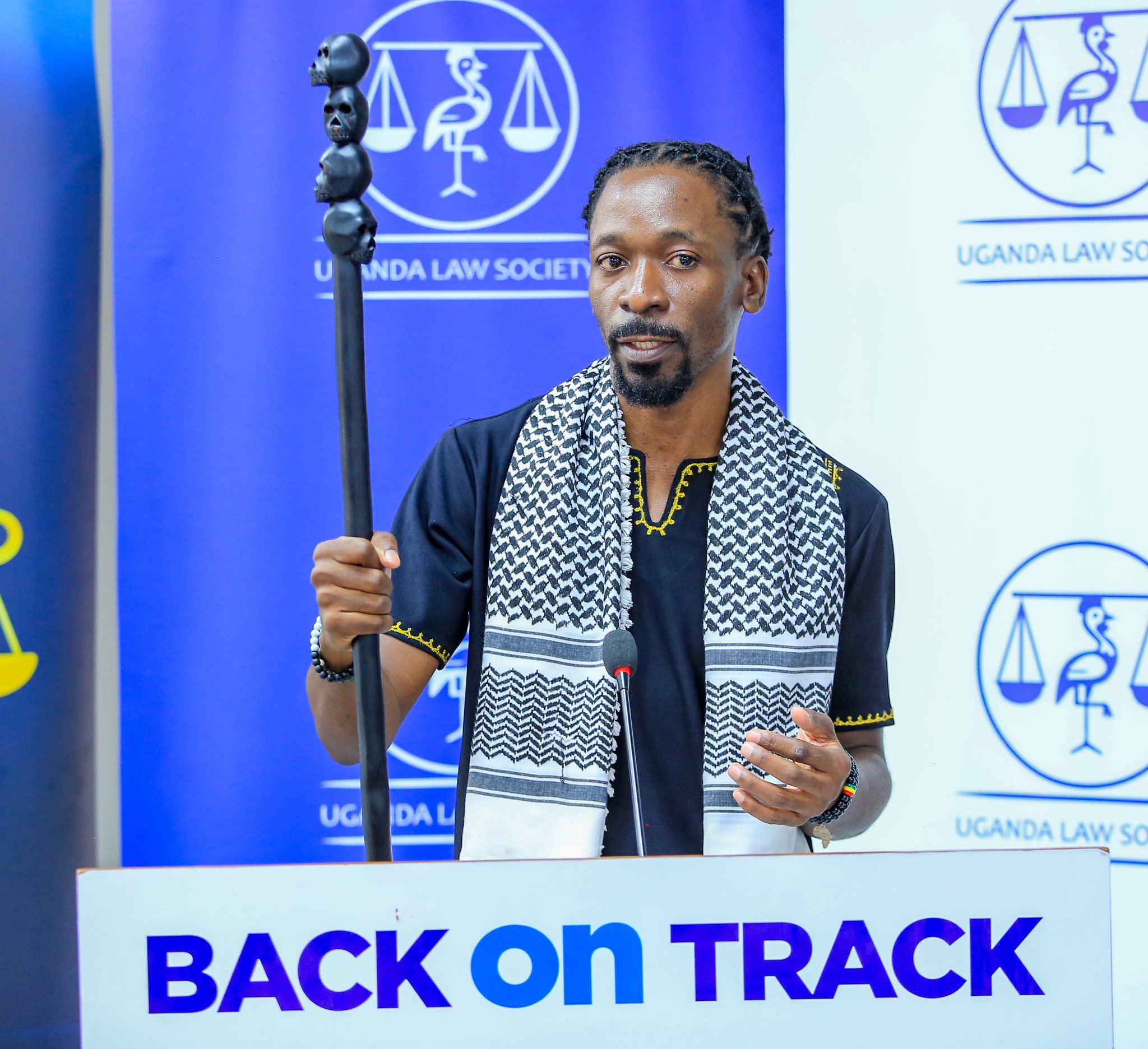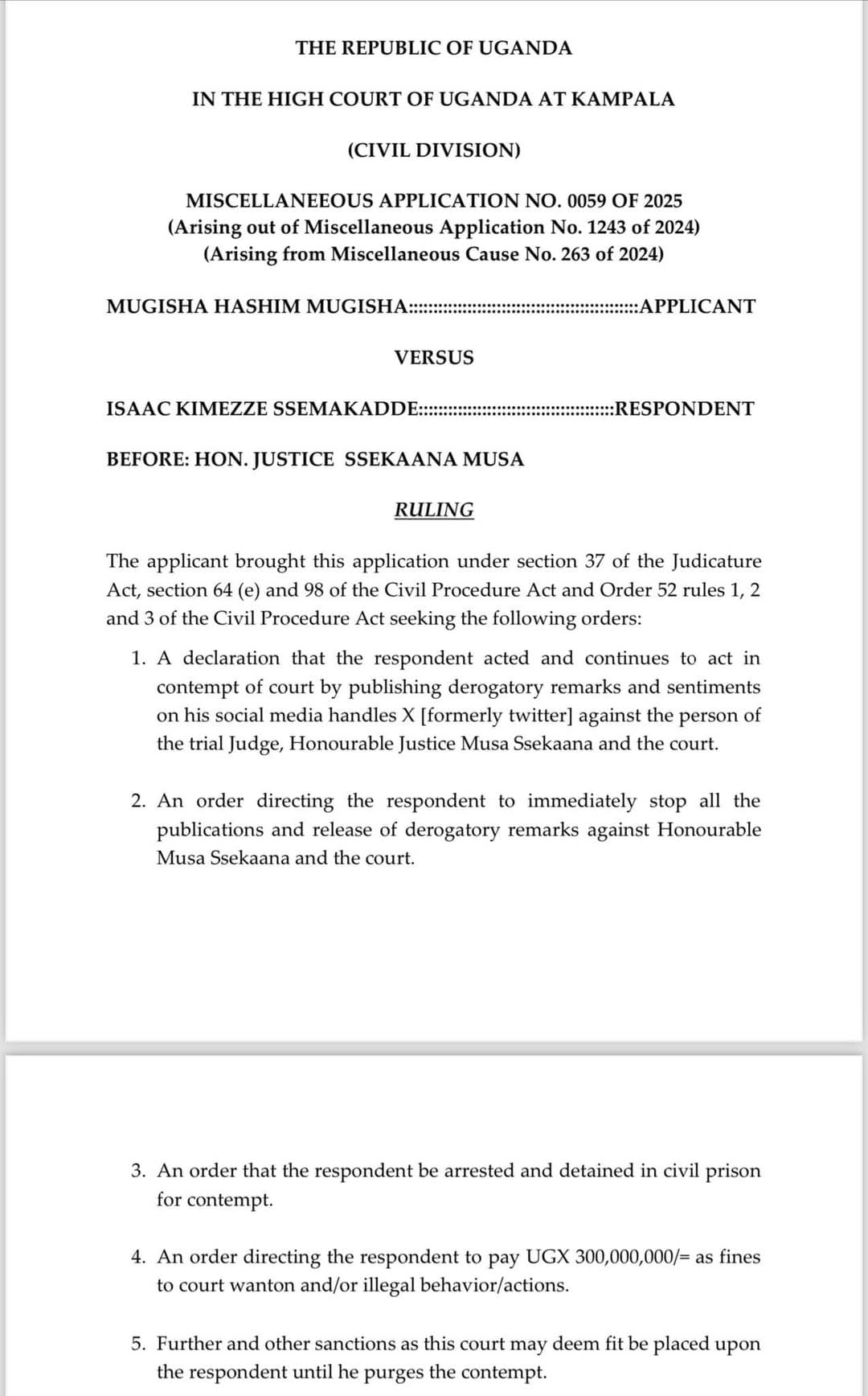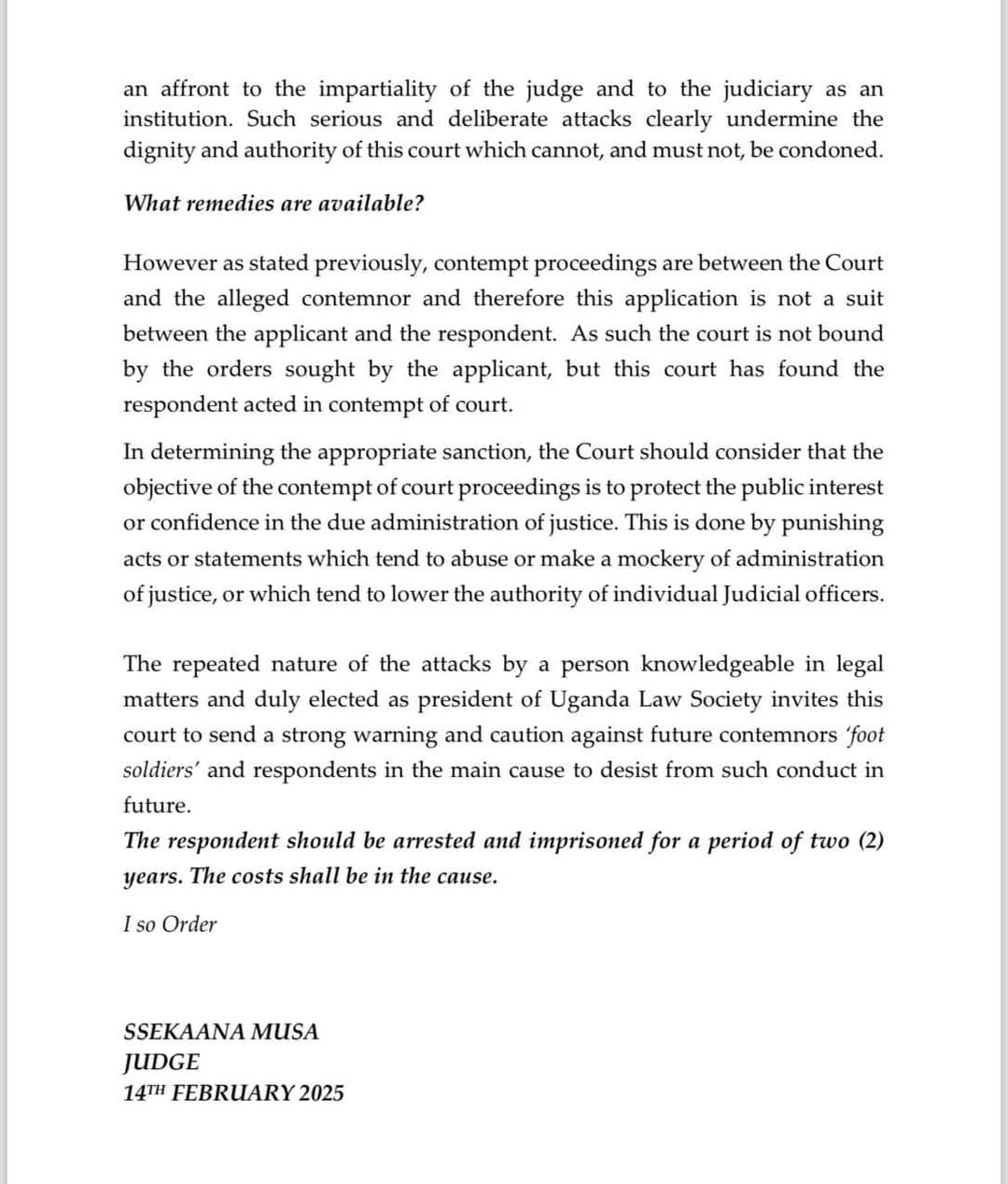
The High Court of Uganda has sentenced prominent lawyer and Uganda Law Society President Isaac Kimezze Ssemakadde to two years in prison for contempt of court. Justice Musa Ssekaana delivered the ruling, finding Ssemakadde guilty of making derogatory and scandalous remarks against the judiciary through his social media platforms.
The case, Mugisha Hashim Mugisha v. Isaac Kimezze Ssemakadde (Misc. Application No. 0059 of 2025), was filed after Ssemakadde publicly criticized Justice Ssekaana following a ruling in another case involving the Uganda Law Society.
Court documents show that between December 11 and December 22, 2024, Ssemakadde made a series of offensive posts on his X (formerly Twitter) account, launching the hashtag #SsekaanaMustGo and accusing the judge of bias, corruption, and improper associations with government officials. He further made explicit and demeaning statements, including allegations of sexual harassment.
In one of his most controversial posts, Ssemakadde called on his followers to "document & expose additional instances of judicial misconduct involving Judge Musa Ssekaana." The court ruled that such statements were defamatory, aimed at intimidating the judiciary, and interfering with judicial proceedings.

In his ruling, Justice Ssekaana emphasized that while judicial decisions can be criticized, personal attacks against judges undermine the authority of the courts and constitute contempt.
“The respondent has continued to make relentless attacks on the judge and the entire judiciary with the sole purpose of undermining its authority. Such conduct erodes public confidence in the judicial system and must be punished,” ruled Justice Ssekaana.
The court further noted that Ssemakadde’s actions encouraged public defiance of court rulings, posing a serious threat to the rule of law. The ruling cited legal precedents that define contempt of court as any action that "scandalizes or tends to lower the authority of the judiciary."
Ssemakadde, known for his Radical New Bar movement and vocal activism on legal independence and human rights, was not present in court during the ruling. His supporters condemned the verdict, calling it an attack on free speech and judicial accountability.


With this ruling, Uganda’s judiciary has sent a clear warning about the misuse of social media to intimidate judges or influence court decisions. It remains to be seen whether Ssemakadde will appeal or serve his sentence.